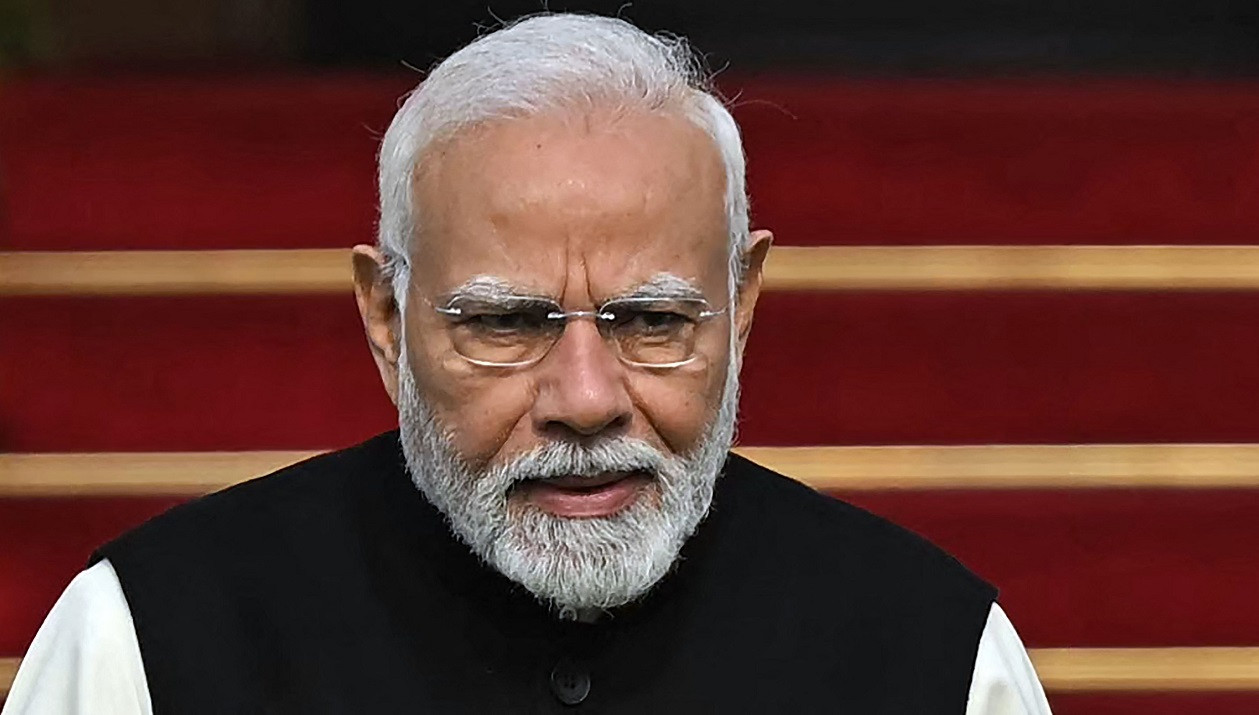
Indian Prime Minister Narendra Modi. Photo: AFP
The people of Bangladesh always recall the assistance India and its people extended to them during the War of Liberation in 1971 with gratitude as the neighbouring country offered shelter to 10 million Bangladeshi refugees and helped train freedom fighters with arms and ammunition.
The people of Bangladesh know that India had its own interests behind this help as the emergence of Bangladesh had weakened its archrival Pakistan forever, yet they consider India as a friend of their bad times.
Unfortunately, India, especially its top leadership, has not valued this notion. Indian Prime Minister Narendra Modi on Monday in a Facebook post from his official profile wrote, "Today, on Vijay Diwas, we honour the courage and sacrifices of the brave soldiers who contributed to India's historic victory in 1971. Their selfless dedication and unwavering resolve safeguarded our nation and brought glory to us."
"This day is a tribute to their extraordinary valour and their unshakable spirit. Their sacrifices will forever inspire generations and remain deeply embedded in our nation's history," he added in the post.
The people of this land had struggled for 23 long years for their rights after separation of the British rule. The war was imposed on them through attacks on 25 March for silencing their voice. They made initial resistance against the Pakistan army and declared independence the next day for their existence.
Bangladesh's independence is not a fictitious account of any political leader. The people of this country came up with a declaration of independence on 10 April 1971 and a formal government took oath on 17 April. They sacrificed anything and everything to defend this independence.
India got involved in the war on 3 December when Pakistan chose to declare war against it for protecting its face after being exhausted and humiliated by the attacks of irregular guerilla fighters of the MuktiBahini. Bangladesh's war against Pakistan was not India's 13-day short story. Rather it was an epic struggle for freedom for a nation that had fought against foreign invaders for years and obtained victory following a formal war of 266 days.
The valiant people of this soil did not fear for a moment to fight against the Pakistan army, one of the powerful military forces of the world at that time, knowing that the number of enemy forces was eight times higher than them. It was the sheer patriotism of the people of Bangladesh that motivated them to show their true character.
Therefore, the British newspaper London Times following our victory on 16 December wrote, "If blood is the price of independence, then Bangladesh has paid the highest price in history."
The Indian Prime Minister certainly can pay tribute to the soldiers of his country for their contributions to the war but he has no right to claim the victory of Bangladesh as a victory solely of his own country. It is a complete distortion of history, undermining the immense bravery, determination and sacrifices of our freedom fighters.
The way he skipped even mentioning the context of the war and avoided uttering the name of Bangladesh made his intention clear. It also raises questions about India's celebration on 16 December though the country never observed the day officially the way it has been doing in the last several years.
It reminds us of the retired army personnel of both India and Pakistan who took part in the war but tried to term it the Indo-Pak war. Pakistanis did this as it would protect them from the humiliating defeat by an irregular force while Indians' cause was to exaggerate their bravery and achievements.
The Indian Prime Minister must know that history does not allow exaggeration. It evaluates only facts. If he has no idea regarding this, he needs a lesson on history. But, if it is intentional, it will bring no good for his country.

